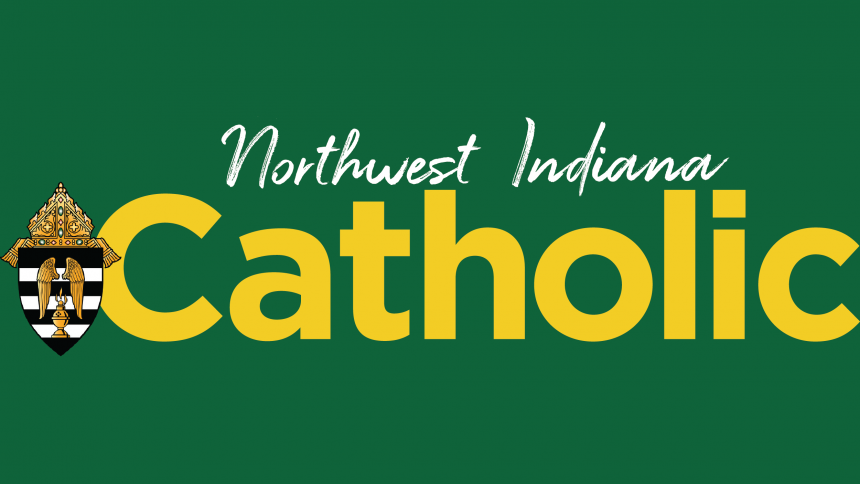
As published in the Northwest Indiana Catholic on October 2, 2016
I recently saw the following quote on Facebook: “The source of all our social problems today is the idea that some people’s lives are less valuable than others.” I could not agree more.
As we celebrate Respect Life Month this October, the Church invites us to ponder the dignity of the human person, created in the image and likeness of God and redeemed by Jesus Christ. The fundamental cornerstone of Catholic moral teaching is the infinite value of all human life, from conception to natural death, with no exceptions or exclusions.
A cursory glance at a newspaper, or a simple view of the nightly news, painfully reveals how far away this ideal remains and how we seem to be moving even more in the wrong direction. Terrorism, mass shootings, deadly and daily violence in our streets consistently grab the headlines, but our society continues to also accept and perpetuate abortion, euthanasia, capital punishment, poverty, abuse and neglect, issues that get less press but remain constant. These attacks on human life and dignity are so common place and widespread, they often times fail to capture our attention or disturb our conscience.
“Gaudium et Spes,” the Vatican II Pastoral Constitution on the Church in the Modern World, calls abortion “an abominable crime,” but it sadly continues to be legal in our country. How can a society predicated on the ringing words, “We hold these truths to be self-evident, that all people have the right to life, liberty and the pursuit of happiness,” continue to allow and approve the destruction of human life in the womb?
How many more millions of unborn children must die before we come to our moral senses? I am grateful that our parishes and Catholic Charities offer so much concrete assistance to women who face crisis pregnancies. We must not only denounce the destructive evil of abortion but we must also create a culture of life where mothers and fathers can easily accept the gift of a child because they are surrounded by love, support and resources. We strive to bring healing and hope to everyone who has been wounded by abortion.
I recently celebrated the funerals of two suicide victims, both young people in their twenties with everything to live for. Suicide rates are increasing among certain sectors of our community. How can we be more supportive of those who struggle with depression, mental illness or grave crises in their lives?
How can we reach the young with Jesus’ message of hope, love and purpose? How profoundly sad to think that many young people feel such hopelessness that they see no way out except death and they think they have no one to talk to about it. Through Catholic Charities, our diocese has recently started a support group for those who mourn a loved one who took their own life.
Euthanasia and physician-assisted suicide are gaining greater traction in our society. If suffering has no inherent meaning and life, even in all its pain, is not seen fundamentally as a gift, then ending a life of pain and difficulty makes sense on some level.
As people of faith, however, we need to lift up the dignity and worth of the sick and the disabled, helping others to see that the weak and suffering in our midst offer a great treasure of love, wisdom and perseverance. Do we really want a culture that eliminates lives that are no longer seen as productive or valuable?
Although no one has been executed in Indiana recently, we still live in a state that embraces capital punishment. Many of the people on death row have committed heinous crimes, but they are still children of God, worthy of life, love and forgiveness. Because they are a threat to society, many may need to be incarcerated their whole lives, but can they still make some sort of contribution to the common good, through work, conversion and prayer?
Because God never gives up on anyone, neither can we. I will never forget my visit to death row in Michigan City; it was a moving experience of faith, prayer and the power of contrition.
All of the recent popes have powerfully called Catholics to build a culture of life and a civilization of love, where every human person is welcomed, respected and loved, where everybody receives what they need to live a dignified existence as a child of God and can also make their own contribution to the common good.
The Church will never stop proclaiming the Gospel of life and working towards its realization until every child has the right to be born, children living in poverty, abuse or neglect are loved, the ill, disabled and dying are supported and affirmed, the hungry are fed, the young have hope, victims of violent crime find healing and prisoners are acknowledged as children of the Father. The poverty, injustice, hunger and violence of this world are powerful, destructive and overwhelming, but love is stronger and far-reaching.
May each of our lives help heal this broken world which God holds so close and has already redeemed.
+ Donald J. Hying
